Just outside of Seattle on the way to picturesque mountain vistas in Woodinville, Washington is a whiskey distillery that has been quietly making some astoundingly good whiskey for over 15 years and challenging the conventions of what bourbon can be. Started by two best friends at the leading edge of the craft distillery movement, Woodinville Whiskey has become an award-winning producer of bourbon and 100% Rye. We sat down with Orlin Sorensen and Brett Carlile to discover their journey into whiskey, mentorship and learnings along the way, and their vision for what’s to come.
How Did Woodinville as a Distillery and Whiskey Producer Come Together?
Orlin: Brett and I have been best friends for the better part of 30 years, and we were kind of beginning our young careers and two entirely different paths in life. But a glass of bourbon would always bring us back together on a Friday night and conversations of, “wouldn't it be great if we could do something together that we both had a passion for and maybe make a living at it?” It was those same conversations that a lot of people have with their best friend or spouse or business partner. And we grew up in this little town called Woodinville, where there's approximately 110 wineries. Some of the pioneering craft breweries in the country started here and the craft distilling scene started in 2009 (or 2010) really throughout the country. Here in Washington state, it piqued both of our interests separately. And it was one night when we came together, having a glass of whiskey, and it began with a, “hey, have you heard about this craft distilling industry that's starting, and the opportunities here in the state that would allow us to sell directly to consumers?” That was the initial conversation, and from there we were off. Certainly the early days were scary, but at the end of the day we were convinced we needed to go for it.
Did Either of You See Yourselves Being in Whiskey at the Time?
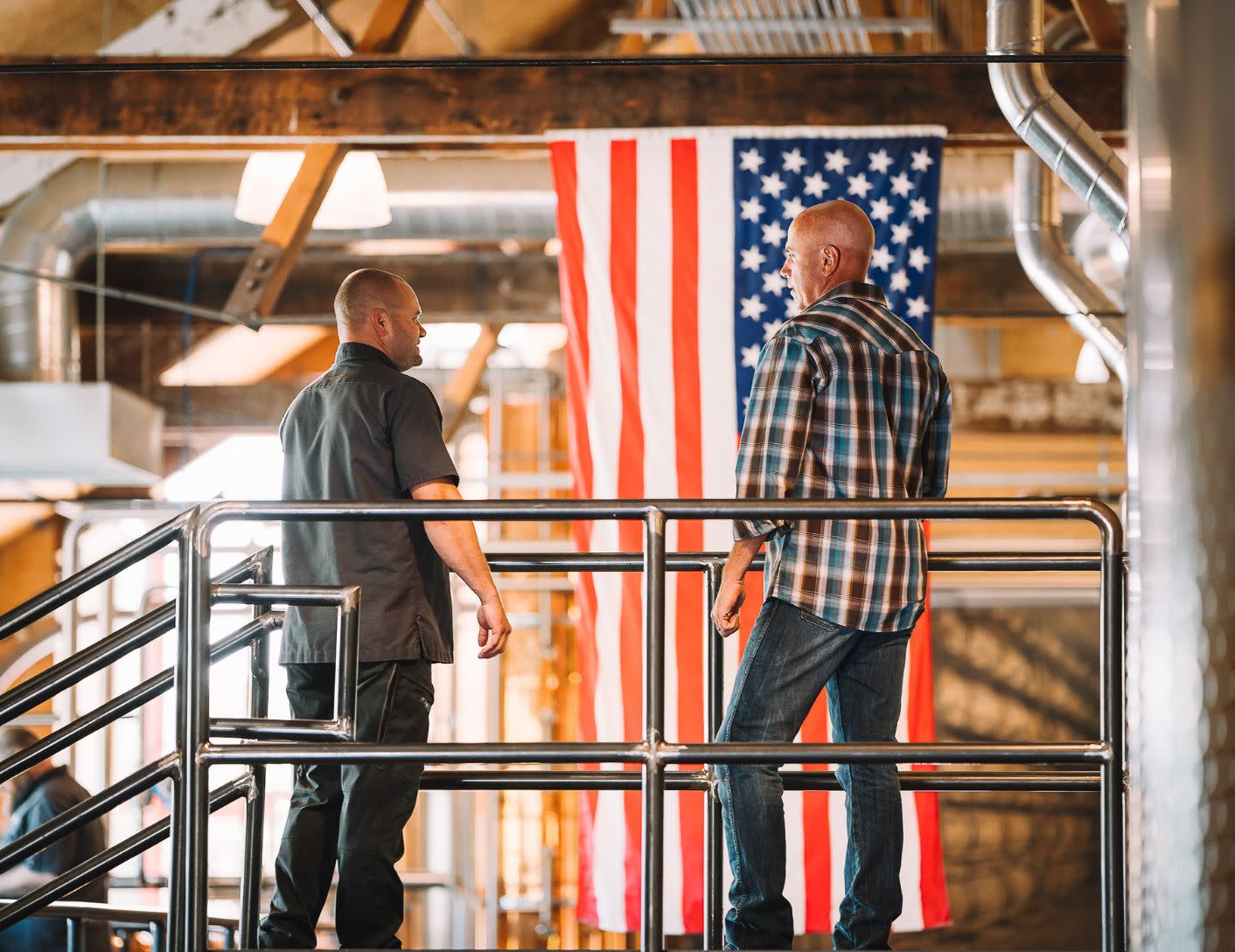
Orlin: I would say ignorance is bliss, because neither of us had any depth of experience here – I would have never told you that I would be in the alcohol industry. Even growing up here, we were both exposed to it and saw it in our small town here, but it was certainly never a path that I thought we would go down. Early in life, I was actually a commercial pilot and flew for the airlines – this has been quite a change from that.
Brett: Yeah, I was a marketing major in college, and then was in several different sales roles outside of college. To your question, the simple answer is no. I never would have thought we would actually be involved in the manufacturing of alcohol, let alone whiskey production. We were damn good at drinking whiskey, but in those early days had no clue how to make it. So back to Orlin's point, ignorance is bliss. We were too dumb to know we probably shouldn't have started this business not knowing how to make whiskey. That kind of goes back to planning this startup, and it was important to find a mentor to teach us how to make whiskey the right way. And that's where our mentor came along, Dave Pickerell, who was the Master Distiller at Maker’s Mark for many, many years. At the time, he was available for consulting, and we conned him into flying out from Kentucky and teaching us how to make whiskey or bourbon the right way.
What Did That Learning Curve of Making a Passion into a Direction Look Like?
Orlin: You know, we knew enough to be dangerous, but fortunately, like Dave said to us, we were blank slates, and we were pretty humble and open to all the suggestions. He’d obviously been down that path for the vast majority of his life, and he had a vision for what the future of American whiskey looked like; he was mostly correct on that. And so, just being able to absorb all that knowledge and information from someone was so critical to starting strong. What's so interesting about this industry, if you want to do anything today, you can always find a great consultant, a great mentor, or hire a coach, and that's what all the great ones do. But in distilling, it's not something that you can perfect in your garage. It's not like there are a lot of distilleries in America that are just bustling with ex-Master Distillers, so they were a very finite select resource certainly 15 years ago. Now that we have thousands of craft distilleries throughout the country, there are a lot of more people that are very well versed in it. But at the time, being able to seek out someone that had the pedigree of Dave, and then our willingness just to learn along the way was really the magic recipe to get us where we are today.
Brett: It was a whole new world for us, and not having experience such as a chemical engineering background. But like Orlin said, we were blank slates, and we were super excited about absorbing all of Dave's knowledge and learning how to perfect our craft in a short period of time. And huge kudos Dave; he was an incredible teacher and mentor, and really allowed us to fail and do things, and then rein us back in to teach us the correct way to do certain things. That time really taught us how to perfect our craft early on, and we've kind of made whiskey the same way we've always made it since day one. Now we're here 14 years later, still making our bourbon and rye whiskeys the exact same way.
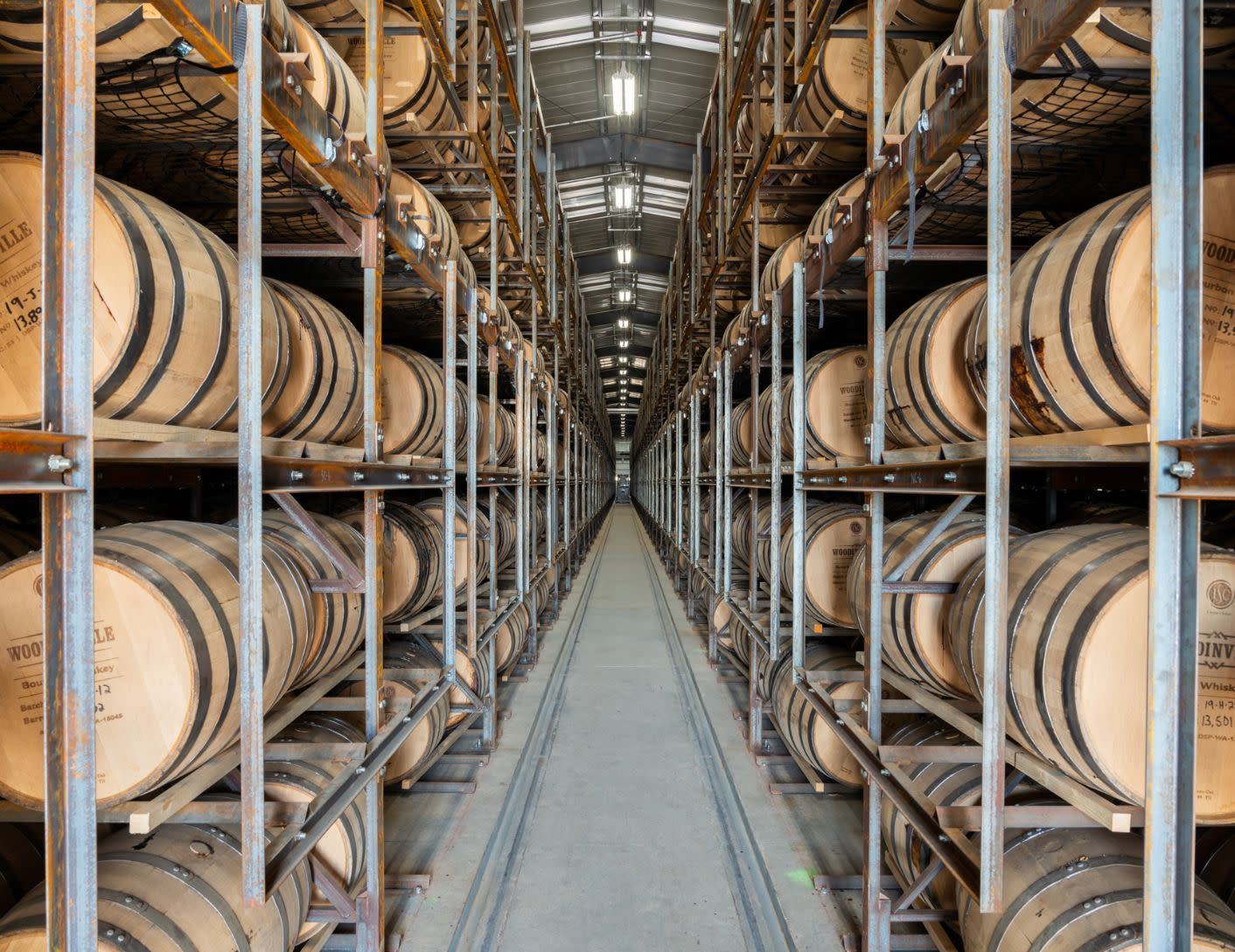
Have There Been Any Ways That You've Refined Your Craft from those Early Days to Now?
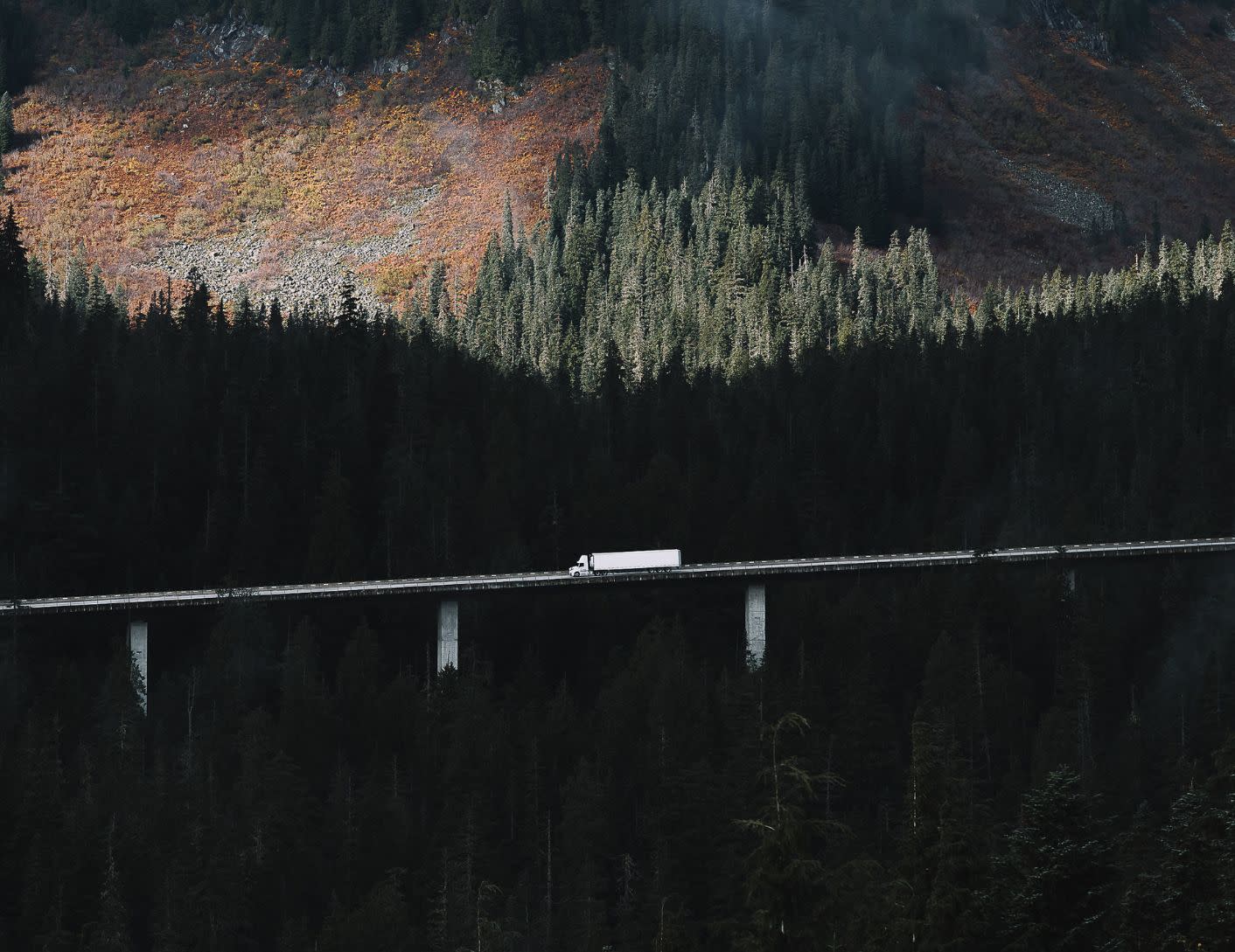
Orlin: Those first few years we were certainly chameleons. Whiskey is a very long test process – it's not something you're always getting right early on – you’re constantly catching your bets. So Brett and I learned a lot along the way as the product matured. This has to be a 10, 20, maybe 50-year vision and evolution, and a lot of people are hesitant to set that forward. Some stick to what they produced in the beginning and never challenge those conventions to really grow. For us, we're constantly challenging what we're doing. What can we do to be better? Now, I would say, over the past decade, we've gotten pretty damn consistent from a production standpoint – it's really been the scale that Brett's had to manage. Brett’s running all production now, and as we've scaled up dramatically, making sure that the way we do things are always aligned with how they were from the beginning.
From a business and brand perspective, the shelf space has never been more competitive on the Bourbon aisle as we're seeing right now. It used to just be a couple sections; now it seems as if half the store is filled with bourbon brands. Woodinville was always on the forefront of craft whiskey – we were some of the oldest, truly grain of glass craft whiskey produced in America, always leading that voice. And now, there's just a lot of clutter. For us, we're looking at ways to stay true to our roots and the authenticity of who we are, while creating awareness amongst the consumers in a very competitive category.
Where Do You See Woodinville Fitting Within a Growing and Evolving Bourbon Space?
Orlin: First and foremost, I truly believe that Woodinville’s liquid can stand up with the best of the best, including the legacy distillers that have been around for quite some time. And really, my dream and desire is for every whiskey drinker, connoisseur, and influencer to say that Woodinville is the one bourbon outside of Kentucky that you have to have in your bar or on your shelf. To have them say, “They are the definition of what great craft whiskey is.” While there are a lot of distillers in the bourbon Heartland that have been around for quite some time doing a great job, I truly feel that Woodinville deserves to always be in that conversation, and our mission won't be accomplished until every consumer has that perception as well.
Brett: I think that we've kind of proven based on our awards, the quality of the liquid and that good bourbon can be made outside of Kentucky. While they're the masters of their craft, it does not have to be made in Kentucky. And so sometimes people will not try our product because it's not made in Kentucky, but I think they're missing out on something special by having those biases.
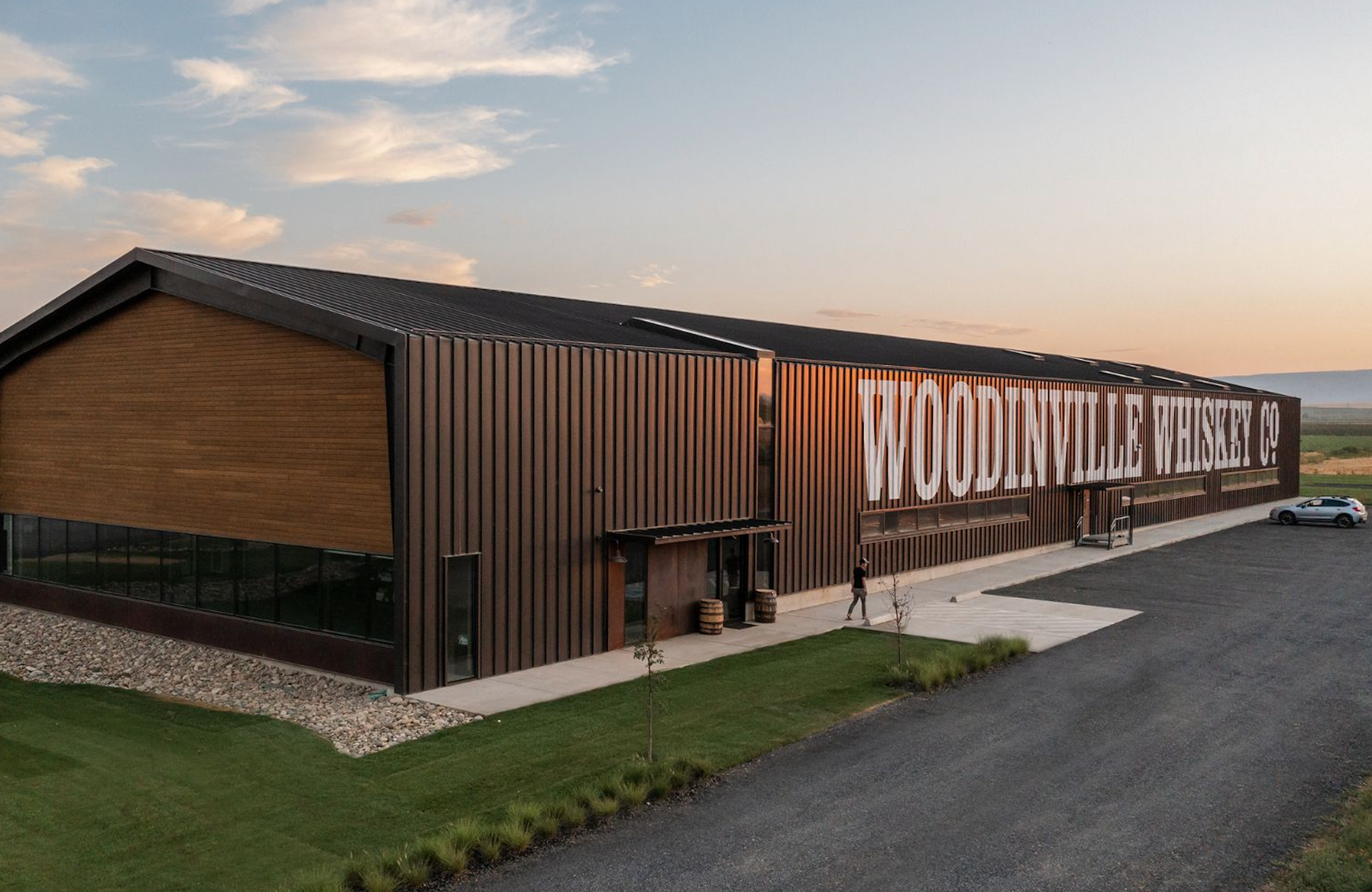
What Makes Woodinville Whiskey Set a Distinct Tone for Bourbon in the Pacific Northwest?
Orlin: One of the keys to our DNA of the brand and a value since day one for Brett and I has been to always source the best Washington grown grains. We've worked with this single family farm in Quincy, Washington, which is just about two and a half hours away. They grow all our grains, and all the whiskey ages there, so it truly is an estate distillery environment. We literally have control from seed to glass. The second piece we do differently is that we sourced the best equipment in the world. These are stills or pot and column stills from Germany. We run a batch distillation through that column distillation.
For those whiskey geeks to really want to dig into it, and understand that mechanism, it really allows us to capture a little bit more of the better parts of the heart run. It’s a much more inefficient operation, but it’s something we've done from day one, and we always will do. And obviously the last piece we spoke to before but has been so key is just the mentorship of those that have come before us that really have proven and defined what American craft was supposed to be.
Do You Have any Routines or Rituals Around Your Work?
Orlin: Brett and I go to the gym every morning together before we get to work. That's a routine and a ritual.
Brett: Every morning for work, it's called going to church. Leave everything behind, get all your stresses out for the day, and then go tackle the day. And then do it all again the next day.
Orlin: Obviously on the personal side that has been really fun. But starting a business with your best friend can definitely create some risks and challenges, but the fact that we're still able to enjoy the things that we enjoyed 34 years ago together speaks to the strength of this relationship and the trust that we have with one another. I think the beauty of this is that we still come together as a group and even individually to have a glass of bourbon – we love it now more than we did when we started this, and really just that journey and experience that bourbon is – there's just so much substance, history and character in a glass of bourbon that there's just really no comparison for me. I hate to use this analogy, but when Howard Schultz started Starbucks it was really about the experience when you walked in there, and I really think that's the same thing with whenever you pour a glass of whiskey, just given the care and the time that it takes – it's more than just the liquid in the glass.
Brett: The cool thing about this industry is every day is a different day. Monday might throw something at you, and then Tuesday's different, and then Friday is much different. And with experimentation that we're doing on different finishes, the excitement of trying where the finish is and its progression – taking the time to see where it's at, if it needs to go longer, is ready to be bottled. All of the different things we get to do on a daily basis here is just astounding. We really only make two whiskeys: a bourbon whiskey and a 100% rye whiskey. Everything else is a finishing barrel, or using toasted staves for finishing. I think we've done over 24 different barrel finishing experiments to date.
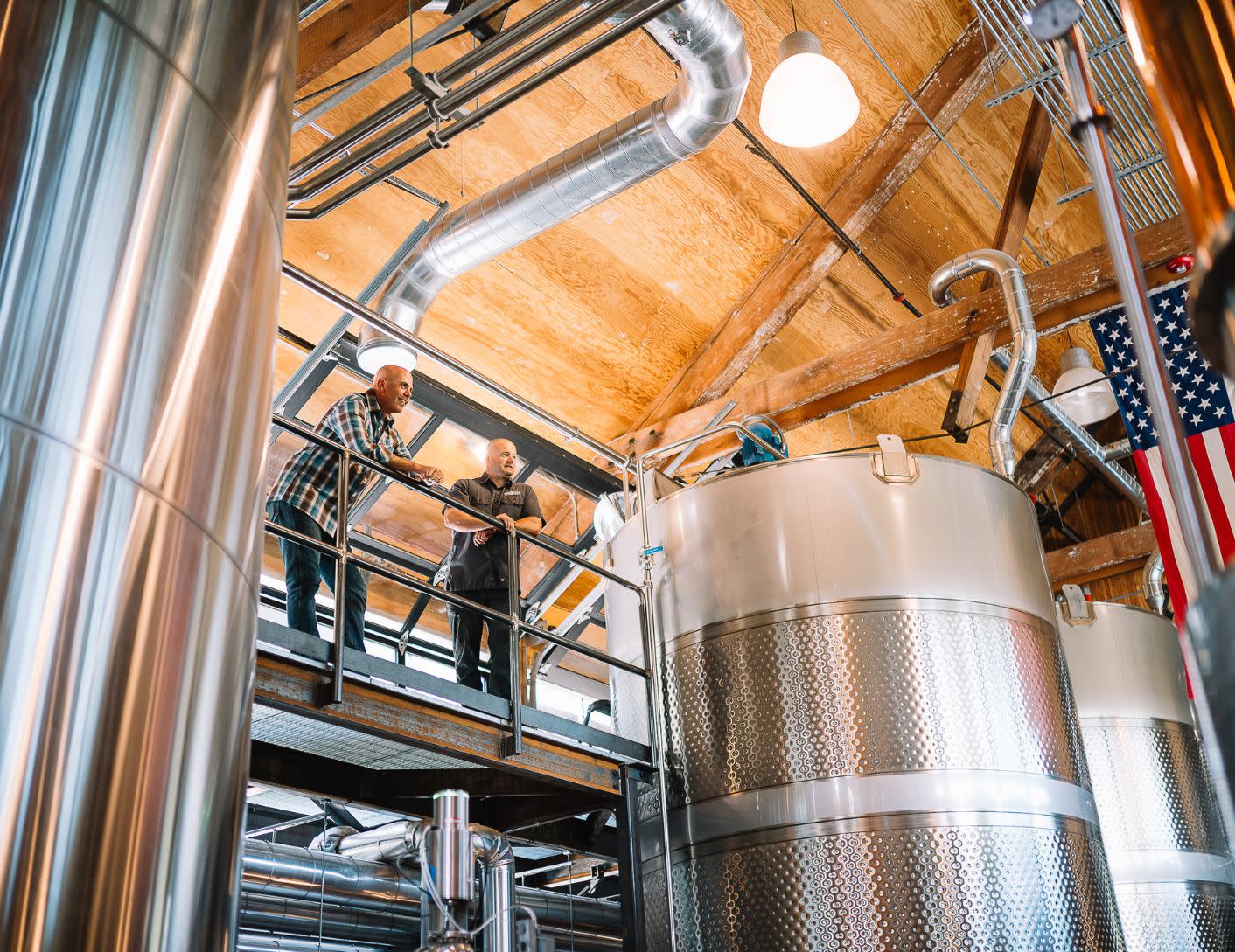
If Someone is New to Woodinville, Where Should They Start?
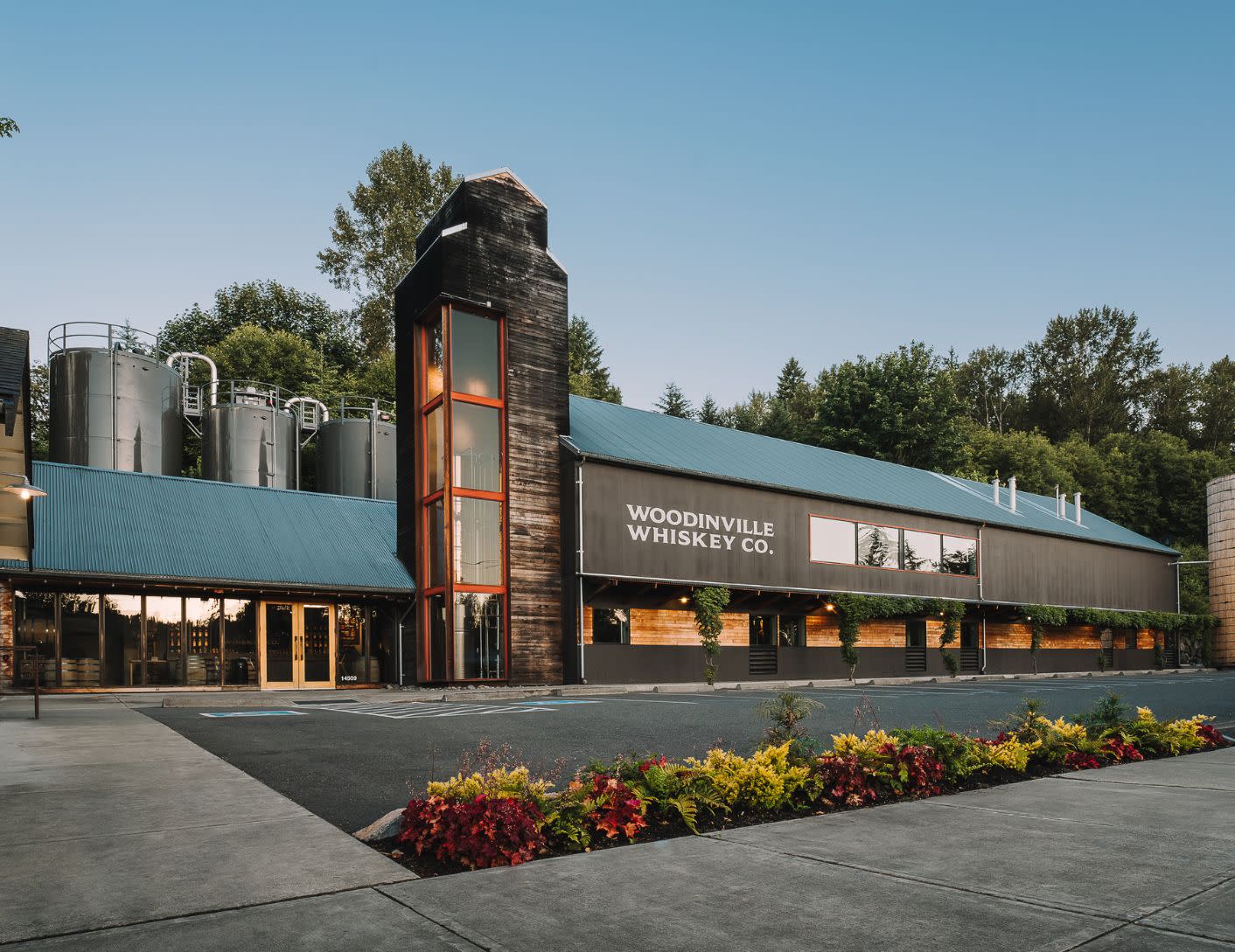
Orlin: First off, if you have the opportunity to come see us, if you're in the Pacific Northwest, here in Woodinville, we have a fantastic consumer experience. If you just want to come in and do a tasting of our cores and our special releases that you can't always get everywhere else, this is just a fantastic place to do that. And then, we have the hands on tour, and some single barrel picks that we have here. That's how we built this brand, welcoming people in the front door, and that will always be the case. If you're new to us, and want to grab a bottle of Woodinville, if you're a bourbon drinker, obviously go that route. If you're rye drinker, both are absolutely fantastic. Just experience the product; I think they speak for themselves. And then obviously onto the port finish, which, if you're looking for the next level with a little bit richer experience, then that's available as well.
Brett: I'll second that. For a first timer, the flagship bourbon is the must try. But don't sleep on the 100% rye whiskey. It changes most people's perception about rye whiskey when they taste this. This is not what you think rye whiskey should taste like. It's very approachable, very flavorful and it does very well in cocktails, or simply on its own neat.
Orlin: I completely agree. A lot of people have this perception of rye being a little bit more of a mouthful, and maybe not something you can always drink neat – that it's going to be spicy, or having certain characteristics. Woodinville 100% rye absolutely is in a different category. It's meant to be enjoyed neat, but then still has all the flavor and character to fight through in all your traditional rye cocktails.
How do Each of You Like to Drink Your Whiskey?
Orlin: We're both typically neat, and there's also lots of times that I enjoy a good cocktail, depending on where I'm at and the season. If I come home and my wife and I are going to go sit outside, she loves a good craft old fashioned, or Manhattan, or even something a bit more advanced, and I'll enjoy that with her. But if you're new and unsure or more advanced, I like to tell people to enjoy it however you want to: put ice in it, put water in it, or make a cocktail. As you can imagine, I'm delegated at quite a bit family and friend functions to bring the cocktails and I’ve found that there are just some fantastic batch cocktails and punches that are truly artisan with just 8 to 10 different ingredients that you can batch for a group of 50 people. That way everybody can have a couple of nice cocktails. I love doing that. And to add to it, I’ll have actually used one of those UKEGs to do a whole batch in there. What you'll find is that so many individuals that aren't necessarily whiskey oriented, because it's in this beautiful craft cocktail kind of situation, they try it and all of a sudden realize that they’re not so afraid of whiskey.
Brett: If you're buying our product, drink it however the hell you want to drink it. But if it's me, it's typically neat. On a hot summer day, I’ll grab a cask strength Bourbon or cask strength Rye and drop one ice cube in it to slowly dilute that product. Usually, that ice cube doesn't have much time to melt because I tend to drink it pretty quickly, but that's usually my go to on a hot day.
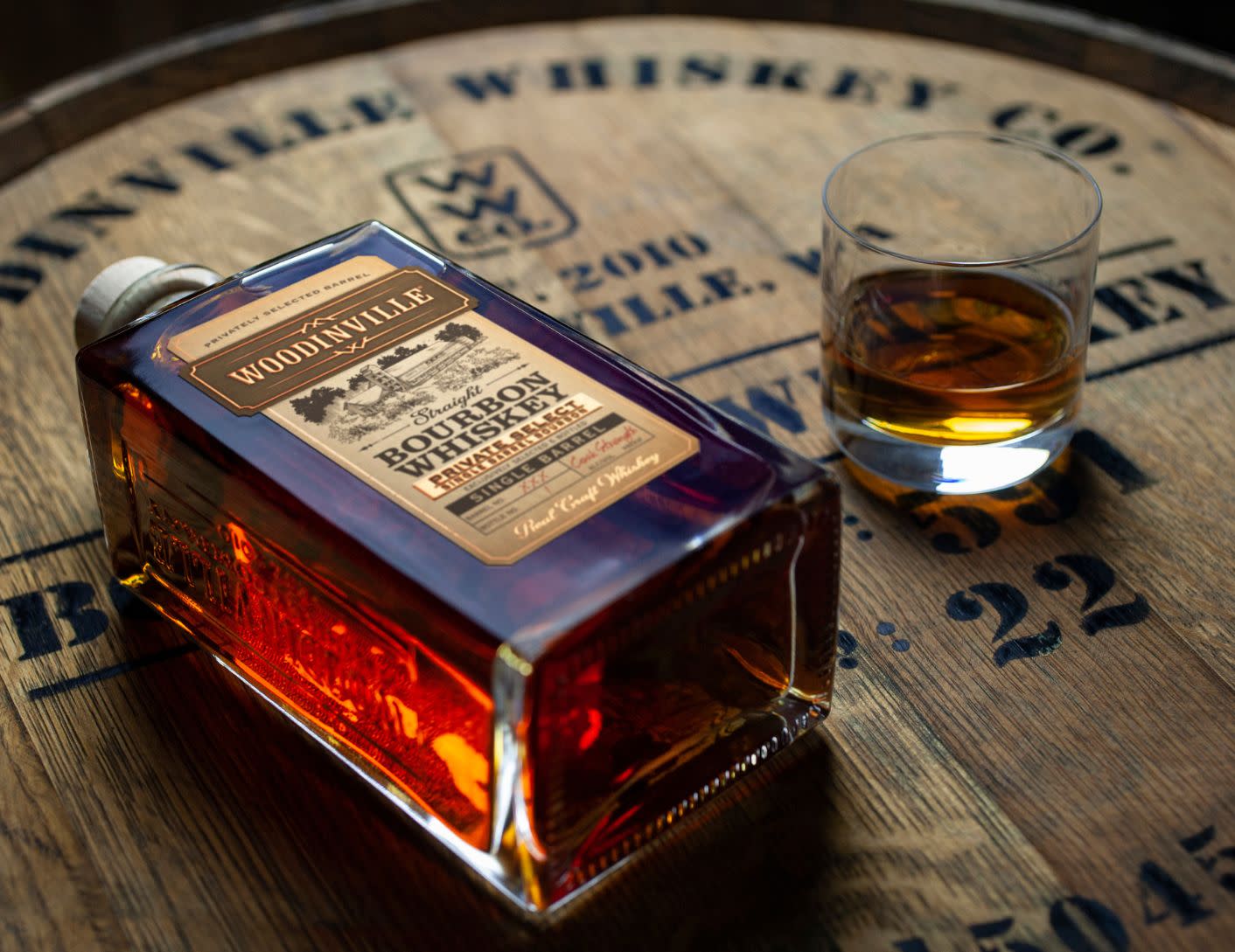
What is Your Specific Approach to Picking Compelling Single Barrels?
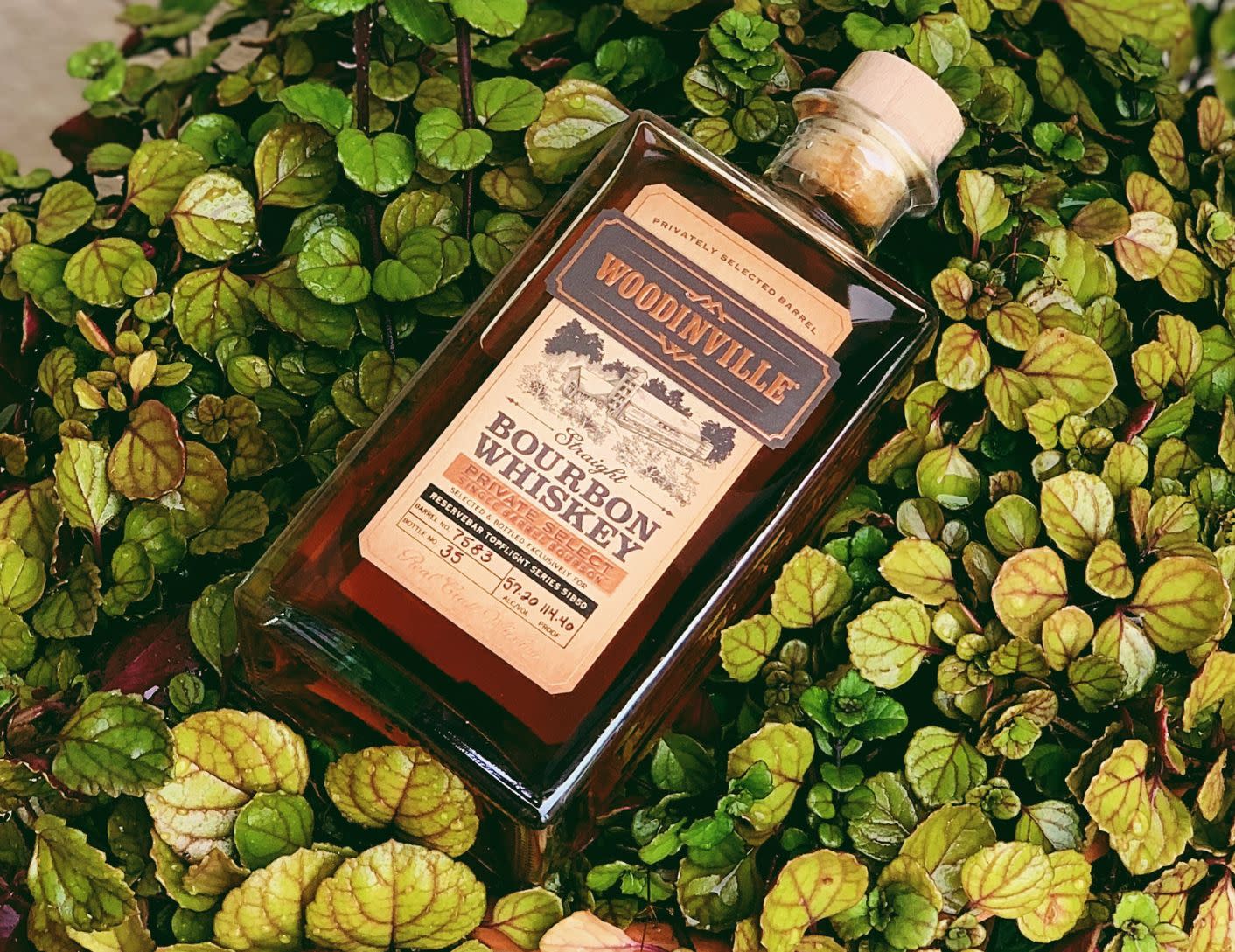
Brett: Typically, our aging warehouses are all single story, so there’s not much fluctuation with the barrels on the top or the bottom. We'll just grab a lot of barrels, and I'll start sampling. And I can tell you the second I tasted it, it's very on par with flagship Woodinville. But for the single barrel releases, I'm looking for something that's kind of cool or unique that the consumer might find interesting. I want something that would be different from our normal flagship bourbon. So once I taste through, I’ll pull certain barrels aside and put them in our single barrel program so they can be shipped out and sampled to accounts on what they think they might like for their profile. That's the beauty of this process – I've had barrels that were filled the exact same day, aged side by side in the Rickhouse, and when I taste them side by side, they can be completely different. That's just the influence on that oak on that whiskey.
Are There any Closing Thoughts that You Have Before We Go?
Brett: I think that as a still pretty young American whiskey brand, in comparison to the legacy brands in Kentucky, there's a lot of cool things to look forward to out of Woodinville in the future. We released our first eight year old bourbon this year and it's just fantastic. And I think people should be excited about some older aged expressions of Woodinville coming out in the near future. There are also some really compelling experiments that we're working on that may or may not see the light of day. But there's some exciting things happening in Woodinville. Every year we've made more whiskey than the previous year, and so we've got a lot of whiskey to play with for really cool things in the future, plus those older age expressions that we're most excited about here at Woodinville.
Orlin: I think that craft whiskey in Woodville has come of age. You're starting to see that throughout the country; we've experienced this over the past 15 years, watching this very young industry blossom and mature into where the distillers like Woodinville are 15 years old. This obviously then correlates with inventory that's matured to more advanced ages and on the shelf we're right there with the best of the best and as far as vintages and maturity. This is all the really exciting part of the evolution for us, where the company is, where this brand is, and certainly, where the liquid is.

